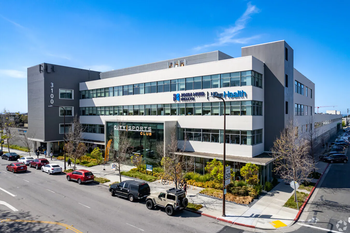The UCSF Center for Reproductive Health offers education and treatment for people of all ages with sexual health concerns. our clinical programs span comprehensive health journeys that go beyond fertility care. We specialize in:
- Female Fertility
- Male Fertility
- LGBTQ+
- Fertility preservation
- Third Party Reproduction
What Sets us Apart
Clinic Locations
Leading the Conversation
In the last decade, egg freezing has become an increasingly common fertility preservation option. Nearly 14,000 women elected to freeze their eggs in 2018 alone. But when is the best time to freeze your eggs—your 20s or 30s?
To ensure that all UC medical plan members have infertility coverage they can count on, UC now offers enhanced benefits that apply across all UC’s non-Medicare plans, including coverage of in vitro fertilization and prescription infertility drugs.
Nearly one in five American women experience infertility, meaning they’re unable to become pregnant after at least a year of trying to conceive, or six months if they’re age 35 or older.
Lauri Pasch, PhD, a clinical psychologist and professor of psychiatry and behavioral sciences at the University of California in San Francisco (UCSF) School of Medicine, has spent her career counseling men and women undergoing infertility treatments,
Purpose of review: In this Perspective we share the personal story of a 33-year-old patient diagnosed with metastatic breast cancer and her journey through fertility preservation, surrogacy, and eventually motherhood, highlighting misconceptions about fertility preservation in this population.
Objective: This study aimed to determine whether exposure to traffic-related air pollution (TRAP) is associated with depressive symptoms while also characterizing the contribution of key explanatory factors related to sociodemographics and health. In addition, it aimed to also explore the role of reproductive health as a pathway through which exposure to TRAP may relate to depressive symptoms.
Abstract
In the last four decades, the assisted reproductive technology (ART) field has witnessed advances, resulting in improving pregnancy rates and diminishing complications, in particular reduced incidence of multiple births. These improvements are secondary to advanced knowledge on embryonic physiology and metabolism, resulting in the ability to design new and improved culture conditions.


